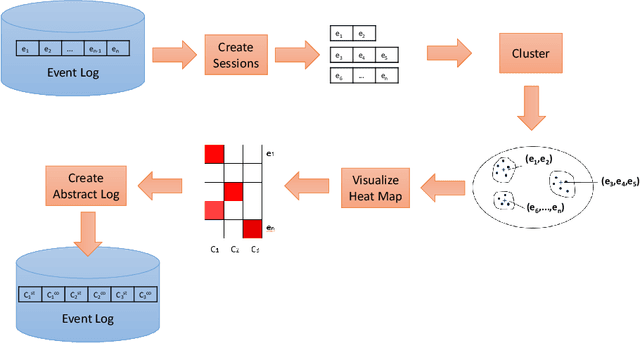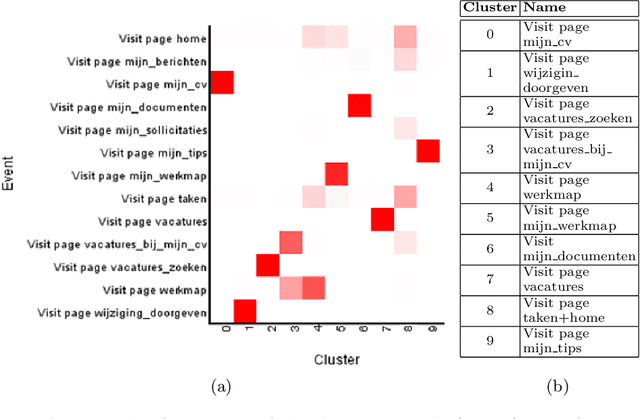From Low-Level Events to Activities -- A Session-Based Approach
Paper and Code
Mar 15, 2019



Process-Mining techniques aim to use event data about past executions to gain insight into how processes are executed. While these techniques are proven to be very valuable, they are less successful to reach their goal if the process is flexible and, hence, events can potentially occur in any order. Furthermore, information systems can record events at very low level, which do not match the high-level concepts known at business level. Without abstracting sequences of events to high-level concepts, the results of applying process mining (e.g., discovered models) easily become very complex and difficult to interpret, which ultimately means that they are of little use. A large body of research exists on event abstraction but typically a large amount of domain knowledge is required to be fed in, which is often not readily available. Other abstraction techniques are unsupervised, which give lower accuracy. This paper puts forward a technique that requires limited domain knowledge that can be easily provided. Traces are divided in sessions, and each session is abstracted as one single high-level activity execution. The abstraction is based on a combination of automatic clustering and visualization methods. The technique was assessed on two case studies that evidently exhibits a large amount of behavior. The results clearly illustrate the benefits of the abstraction to convey knowledge to stakeholders.
 Add to Chrome
Add to Chrome Add to Firefox
Add to Firefox Add to Edge
Add to Edge